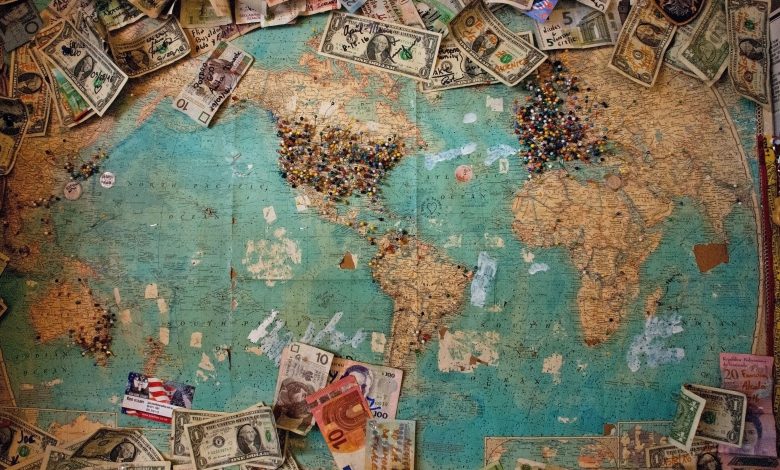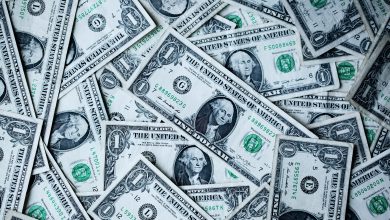Tips To Save On Currency Exchange Fees When Traveling Overseas

Traveling to a foreign country is an enriching experience and also an expensive one. In addition to finding the best deals on flights and hotels, you can also save a considerable amount of money in transaction fees while exchanging dollars for foreign currency.
If you have not packed your bags already, then there is enough time and opportunity for you to get the best foreign exchange rates. Your aim should be to get a deal as close to the interbank exchange rate, the rate at which banks trade currencies with each other. Now, those rates are reserved for big banks and financial institutions that trade currency in large quantities. When an average person such as you tries to make a much smaller transfer, the currency exchange is most likely to be offered at a marked-up price so that banks can make a profit on the transaction.
You will never really come out ahead in a foreign exchange transaction, but you can come as close to even as possible. Give yourself ample time to arrange for local currency early and not make a scramble at the last moment; that will most likely end up being an expensive proposition.
The following are 10 ways in which you can save on currency exchange fees when traveling overseas:
1. Buy foreign currency from your local bank
One of the safest ways to exchange currency and avoid high fees is to buy foreign currency from your local bank. Exchanging money at your bank can be slightly time-consuming as it may take nearly a week for your money to be delivered to you. Though this option is open only before you begin your travel, it allows you to arrive at your destination with local money at a relatively low cost.
Banks will sell you foreign currency at a rate slightly higher than the interbank rate. This fee is considered “hidden” and not disclosed by the bank; you just see the rate at which the bank will sell you foreign currency. The exchange rate that you will get at your local bank is usually a 4-6% markup on the bank rate.
Most banks allow for money to be arranged in advance by letting you order it online or collect it from a local branch using a savings or current account. Collecting cash from the local branch is often the cheapest option with no additional fees. If you want the exchanged currency delivered to you, then you can have delivery fees eating into your savings. Barring a small fee, your local bank or credit union is almost always the best place for buying foreign currency.
2. Buy foreign currency online from exchange firms and services
You can buy foreign currency at low rates by using online services and exchange companies. How much you save with lower fees can also depend on the amount of money you are exchanging.
Some exchange firms like Travelex are a great option to exchange money if you are short on time. They usually don’t take the usual five days taken by local branches to exchange money. Some deliver the money at your doorstep or at the departure airport also. Getting money delivered to an airport of your choice or home always results in a delivery fee. You may also have to pay foreign transaction fees if the money is being delivered to an airport. Pick-ups at local branches of these exchange firms, however, usually translate to lesser fees. As long as you have time to invest in the leg-work, you will generally save money exchanging currency. Some of these firms will also buy back your extra foreign currency when you return at no extra fees, provided that you do so in a particular window of time.
Other online services allow you to compare exchange rates online and purchase foreign currency at rates not much higher than the interbank rate. These services work with certain conditions, though. One, you either need to have a bank account in both your home country and the country where you are traveling to or have an account that works with multiple currencies. Second, the minimum amount of money you have to transfer might be high. Most of these services require a minimum of $5,000 transfer. If you can meet these conditions, you can exchange foreign currency at rates as low as 0.5% above the interbank rate.

3. Use a credit card with zero percent fees
After you have landed in your destination, using a credit card is often the easiest way to pay for non-trivial charges, such as train tickets, restaurant and hotel bills, and expenses such as shopping. Credit card usage will generally cost you about 3% in transaction fees on foreign expenses or charges.
Let’s take a look at how transaction fees work. When you pay for an expense abroad using your credit card, the merchant makes the charge in local currency to its bank. The merchant’s bank, in turn, uses a payment network, such as MasterCard or Visa, to issue the charge to your credit card issuing bank or credit union. The payment network performs the currency exchange and submits the charge in dollars to your bank to be entered into your account. A transaction fee of about 1% is charged by the network to process this foreign transaction. On top of the transaction fee, an additional surcharge around 2% is often charged by your bank on foreign transactions, bringing the overall transaction fees being charged to you to around 3%.
Though an additional charge of 3% is still better than exchanging cash at a street exchange shop at your destination, your savings can be lower still using a credit card with zero percent transaction fee. A lot of banks offer travel-based credit cards with no foreign transaction fees that sometimes discount even the 1% fee charged by the payment network. These credit cards, however, may come with high annual fees. If you are a frequent traveler, these annual fees may get balanced out by the savings you make on the foreign exchange fees.
4. Withdraw local currency using a debit card with low or zero fees
In spite of having a credit card to charge your transactions to, you will always need cash handy when traveling abroad. You may have already purchased foreign currency before leaving home but still find yourself needing cash at short notice. You can always use your debit card at the local ATM to withdraw money, albeit with various fees added to the withdrawal.
When you use your debit card to withdraw cash at the local ATM in a foreign country, you may end up paying three fees: the currency conversion fee (usually 1%); a transaction fee charged by your bank for withdrawing money from an ATM abroad; and a fee by the bank of the foreign ATM. Your bank typically charges you a fee of $3 to $5 for every cash withdrawal from a non-partner foreign ATM. These fees combined can make a withdrawal from an ATM abroad costly. Read the terms and conditions of international payments using your US-issued debit card carefully before using it at any foreign bank ATM.
Some debit cards allow you to make cash withdrawals from foreign bank ATMs at very low (about 1-3%) or no transaction fees. They may also reimburse international ATM fees charged by the foreign banks. With low or zero transaction fees charged to your debit card, you may end up paying just the 1% currency conversion fee charged by the payment network (such as Visa or Mastercard). Using these debit cards can result in considerable savings on foreign transaction fees while withdrawing cash from an ATM abroad.
5. See if your bank partners with a local bank
You may check with your bank to see if they partner with a financial institution in the country that you are traveling to. These local banks may have an arrangement with your bank that reduces the transaction fees charged on your cash withdrawals. There are banks that are part of the “Global ATM Alliance” that do not charge withdrawal fees at ATMs of member banks. For example, a lot of US banks partner with their European counterparts to offer their customers a zero-transaction fee experience using a US-issued debit or credit card.
Most banks charge a high fee for making cash withdrawals from a bank ATM that is outside its network of partners. To avoid out-of-network fees that may result not only in transaction fees charged by your own bank, but also a surge from the foreign bank, stick to making withdrawals from ATMs that you know are partners of your home bank. Another tip to follow would be to avoid ATMs with low withdrawal limits. You will save a lot more by withdrawing a larger amount of money at once, rather than incurring transaction fees from your bank and the local ATM that recur every time you make smaller withdrawals.
6. Avoid exchanging money at the airport
It can seem very convenient to exchange currency at the airport. All you have to do is head to a kiosk at the airport while leaving or on arrival to grab some cash that will last you a few days. However, this convenience comes at a high price – and the exchange firms operating the booths at airports are counting on you prioritizing convenience over planning ahead.
A piece of advice that you will hear over and over from seasoned travelers is to stay away from the currency exchange booths at the arrival and departure airports. The exchange rates offered at the booths that line these terminals are typically at a massive 15% markup over the interbank rate. In fact, any currency exchange kiosk near popular tourist areas will also offer similar rates. If you buy foreign currency at the destination airport and exchange it for dollars at an airport also before flying home, you will lose money on both occasions.
A better idea would be to withdraw money from ATMs at the airport even if you don’t have a special travel card with low or zero foreign transaction fees. Even if you are charged the full possible fees, you will still pay less than the rates charged to exchange currency at an airport kiosk.

7. Pay local businesses in local cash, not dollars
There used to be a longstanding belief that US dollars are welcome everywhere. In countries with high inflation and weak currencies, you may still find your US dollars welcome and treated at par with the local currency. You may even be offered the current exchange rate or even better sometimes. But these cases are rare and cannot really be your first option while trying to save money on exchange fees. The case of the US dollar being the favored currency globally may have been true for a few decades around the 1950s, but it does not hold true in most places in the world today.
Most local businesses in countries with reasonably stable currencies prefer their local currency for payment; accepting dollars is a hassle and an unwanted overhead for a local business. Some local merchants may offer to accept payment in dollars; experts recommend against accepting that convenience. The rate at which a local business will exchange your dollars will most likely be much higher than the interbank rate. Hotels often have desks that exchange currency as well, but you would be advised to stay away from them as well – they often charge exchange rates worse than street exchange bureaus. On top of the exorbitant exchange rates, you will still be liable to pay any conversion fee that your bank may charge on the transaction.
8. Draw money on your credit card
It is common knowledge to not draw cash on your credit card because the money withdrawn is treated as a cash advance by your bank and starts accruing interest almost immediately. Drawing money on a credit card is thus generally treated expressly as an emergency measure. However, if you have a credit card with low or zero foreign transaction fees, then you can use it to draw money from a foreign bank ATM at a cheaper rate than by using a debit card. You will just need to have enough funds in your account to cover the withdrawal.
The idea is to utilize a card that offers a better exchange rate and not just lower transaction fees. Say you have the option to choose between a debit card and a credit card with similar foreign transaction fees to draw cash from an ATM abroad. Conventional wisdom would dictate to use the debit card to avoid interest on the cash advance. However, if the credit card offers a currency exchange at a better rate than the debit card, you would do better making the cash withdrawal with the credit card. After withdrawing cash from the ATM, you can just log into your online banking account and pay off the credit card bill before you are charged any interest by your bank. Using this method, you can work around the credit system a bit to save money on foreign transaction fees.
9. Buy local currency from a foreign bank branch
If the country you are traveling to is a place that you visit frequently, then you could consider opening an account there. Having an account in a foreign bank will let you exchange dollars for local currency at rates similar to those that you would get at banks and credit unions in the US. This would also allow you to travel without having to worry about planning and ordering foreign currency before arriving at your destination.
Opening a new bank account in another country can take some time though. You may have to open this account much in advance before your travel dates. You may even find that you are able to utilize the services of the new bank account only on your next visit to the country.
10. Buy currency from online listings
This may seem like unusual advice, but it is one that has been known to work when adequate precautions are taken. People who travel abroad often find themselves in possession of foreign currency that they have not converted back to dollars after returning. They post ads on places like Craigslist, Facebook, online listings and the newspaper. Buying foreign currency from these listings lets you avoid all sorts of transaction fees and may even get your foreign currency at current interbank rates without any markups. However, this involves getting into transactions with people you may not necessarily know well. It is advisable to conduct these transactions as safe as possible and to take precautions, such as meeting in public places and having someone by your side.
Traveling to a foreign country can be made a lot more expensive by various fees charged to exchange currency. Saving on these fees charged by your bank and local financial institutions usually involves some time and planning on your part, but it is an effort that usually pays dividends. You can save money on exchange fees in various ways, such as using zero-fee credit and debit cards, purchasing foreign currency before travel, and by staying away from airport exchange booths to buy currency, to name a few. Using the 10 tips discussed above will help you be a savvy traveler and let you manage your finances on your overseas trips effectively.



